- News
- Reviews
- Bikes
- Accessories
- Accessories - misc
- Computer mounts
- Bags
- Bar ends
- Bike bags & cases
- Bottle cages
- Bottles
- Cameras
- Car racks
- Child seats
- Computers
- Glasses
- GPS units
- Helmets
- Lights - front
- Lights - rear
- Lights - sets
- Locks
- Mirrors
- Mudguards
- Racks
- Pumps & CO2 inflators
- Puncture kits
- Reflectives
- Smart watches
- Stands and racks
- Trailers
- Clothing
- Components
- Bar tape & grips
- Bottom brackets
- Brake & gear cables
- Brake & STI levers
- Brake pads & spares
- Brakes
- Cassettes & freewheels
- Chains
- Chainsets & chainrings
- Derailleurs - front
- Derailleurs - rear
- Forks
- Gear levers & shifters
- Groupsets
- Handlebars & extensions
- Headsets
- Hubs
- Inner tubes
- Pedals
- Quick releases & skewers
- Saddles
- Seatposts
- Stems
- Wheels
- Tyres
- Health, fitness and nutrition
- Tools and workshop
- Miscellaneous
- Tubeless valves
- Buyers Guides
- Features
- Forum
- Recommends
- Podcast
news
“Good to see those who don’t pay road tax getting priority”: New “unsafe” Dutch-style roundabout will add 45 minutes to journeys in hilly city where “most people can’t cycle”, confused drivers say + more on the live blog
SUMMARY
 Sheffield Dutch roundabout (Sheffield City Council)
Sheffield Dutch roundabout (Sheffield City Council)25 September 2024, 08:08

“Good to see those who don’t pay road tax getting priority”: New “unsafe” Dutch-style roundabout will create “chaos” and add 45 minutes to journeys in hilly city where “most people can’t cycle”, confused drivers say
Next month, Sheffield’s cyclists will get their first taste of what it’s like to cycle in the Netherlands (kind of), when the city’s first-ever ‘Dutch-style’ roundabout is completed.
First introduced in the UK in Cambridge in 2020 and based on a design made popular in the Netherlands (hence the name), the new roundabout layout at West Bar in Sheffield, work on which began in April last year, offers priority to cyclists and pedestrians, with motorists asked to give way to more vulnerable road users on entering and exiting the roundabout.
Zebra crossings are installed at each arm of the roundabout, giving pedestrians priority over drivers, while a one-way protected cycle lane will move clockwise around the infrastructure, providing dedicated space for those on bikes.
These two new features, Sheffield City Council says, will also manage the speed of traffic using the roundabout, “increasing safety for everyone”.
However, judging by some of the comments made on social media and on local radio, it’ll take a while before everyone in Sheffield is convinced.
“Let’s make it safe for all road users, let’s put a system in place that nobody has used before. What could possibly go wrong?” asked Sheffield United fan Bulmer on Twitter.
“A zebra crossing on the exit of a roundabout. That’s not going to cause any accidents, is it?” echoed SJT.
“Good to see those not paying any road tax are being given priority on the road,” added Andy Cutts. Classic.
“I’m all for these roundabouts, but I’m concerned that drivers don’t know how to negotiate them,” another Twitter user said.
> More collisions at UK's first Dutch-style roundabout than old layout, figures reveal
And on BBC Radio Sheffield, some listeners claimed the roundabout would cause the same “chaos” witnessed in Cambridge since 2020.
Last year, figures provided by Cambridgeshire County Council showed that there were more reported collisions at the Dutch-style roundabout in its first three years (ten, three of which were serious) than in the years prior on the old layout (six).
However, the council was also keen to point out that the number of cyclists using the roundabout had increased by almost 50 per cent since 2017, meaning those on bicycles accounted for 11.4 per cent of all traffic users in 2022. Equally, pedestrian usage had also risen by about 30 per cent.
One Radio Sheffield listen told the programme that she lived in Cambridge for two years and described it as “chaos”.
“On average it put 45 minutes on a journey. Terrible idea, locals avoid it and call it crazy,” she said.
“This roundabout was proven to be unsafe in Cambridge,” fellow Sheffield-resident Richard added. “Someone needs to tell the council that Sheffield is built on seven very high hills and most people can't ride a cycle here.”
> Tory activist criticised for “anti-cyclist” and “jingoistic” opposition to new roundabout
However, the outlook wasn’t all doom and gloom as the West Bar roundabout nears its big unveiling.
“Yes, they’re brilliant. Well done for putting one in,” cycling campaigner Dan Brothwell said on Twitter.
“I’m looking forward to this being finished. It will make it much safer and pleasanter to cycle through that area,” another user said.
“All the comments moaning – Go to Europe and see how it’s done,” added Gary. “It’s a proven method and works perfectly fine. The only reason it doesn’t work is because the driver doesn’t understand or doesn’t want to!”
Meanwhile, the Royal Society for the Prevention of Accidents (RoSPA) said the roundabout layout has been found to have reduced serious incidents in the Netherlands by about 46 per cent.
“Giving equal precedence to all road users such as cyclists, as well as pedestrians, creates a more inclusive environment while maintaining smooth vehicle flow,” Caitlin Taylor, road safety manager at RoSPA, said.
“However, educating drivers will be crucial to prevent confusion and incidents, and clear signage and awareness campaigns will also be essential to ensure all road users understand the new layout.”
Cycling UK, however, noted that while the plans are a positive step in the right direction, cycling can only be properly encouraged in Sheffield by a well-connected network of safe routes in the city.
“While these changes help make it safer for people cycling, unless they’re part of a comprehensive, joined-up network of safe cycle lanes, we won’t see a surge in people getting on their bikes,” Cycling UK’s Sheffield-based senior policy officer Monica Scigliano said in a statement.
“If we truly want to encourage more people to make their everyday local journeys by bike, it’s crucial that well-designed cycle lanes connect to other local networks beyond the city centre.”
However, the local council is adamant the new Dutch-style roundabout forms part of broader plans to do exactly that.
“Sheffield is changing, and the way people get around is also transforming, we’re making it safer, easier and greener for you to enjoy everything the city has to offer,” the local authority’s transport chair Ben Miskell said.
“The introduction of the new Dutch-style roundabout will continue that, linking in perfectly with award-winning Grey to Green offering along with our other regeneration projects at Castlegate, Attercliffe, West Bar and Heart of the City among many others.”
25 September 2024, 16:21
“If drivers adhered to speed limits and the Highway Code, we wouldn’t need this sort of infrastructure”
I’m sure you’ll not be surprised to learn that a few of our readers aren’t convinced by some of the arguments emanating from Sheffield that the city’s maiden Dutch-style roundabout will cause an uncontrollable outbreak of confusion and chaos.
In fact, as Tom noted in the comments section and as evidenced by the below photo, the roundabout in question already has a dreaded pedestrian crossing on one exit.
“It’s not that unusual,” Tom said. “Also, Highway Code Rule 187 in regards to roundabouts says: In all cases watch out for and give plenty of room to pedestrians who may be crossing the approach and exit roads.”
Meanwhile, Smoggysteve, who lived for a while in Germany on the Dutch border, assessed in-depth (how long do you get for your lunch Steve?) the reasons why some people are aghast at what, after a go or two, is perfectly straightforward infrastructure to navigate:
These roundabouts work quite well in the Netherlands. They are everywhere and considering the entire system of roads is very cycling focused it helps that this means there are far fewer cars on the roads to begin with. You get much less inner-city traffic and it’s mostly concentrated to the motorway. So expecting them to just slot into a much busier ecosystem is a little naive.
But I look at various other UK road anomalies/novelties such as the magic roundabout in Swindon. To look at it from the air it looks madness. When you actually drive it a few times it makes a lot more sense.
Why? Because people adapt. How do people navigate roads they are unfamiliar with? How do I know, when I get off the ferry in Calais that I don’t drive on the left? A bit of research? Maybe a road sign as a reminder? How do I know not to drive over that bump back bridge at 30mph? Oh yeah, another sign. That prepares me for what is ahead.
Most of the arguments (whinges) by people who haven’t even experienced it yet is just plain laziness or refusal to accept change. Nothing more. What would these people ever do if they drive abroad where you may encounter this type of roundabout, but with the added obstacle of it flowing the other direction?
Clem Fandango also wasn’t having the arguments against Cambridge’s own Dutch roundabout, especially the claim that it adds 45 minutes onto drivers’ journeys (while they simultaneously avoid using it).
“I’ve told you a million times, do not exaggerate!! Even if it does, maybe, I don’t know... walk or cycle instead if you can. It’s obviously quicker,” they said.
“I love the ‘Sheffield is hilly’ argument,” added Jh2727. “Surely all the more reason that Sheffield should be building stuff like this – they can’t do a lot about the hills, but anyone who takes on the hills of Sheffield surely deserves the best possible cycling infrastructure.”
And Tony concluded: “If drivers adhered to speed limits and the Highway Code, we wouldn’t need this sort of infrastructure.”
Amen.
25 September 2024, 12:36
“Calling on drivers to ‘show consideration’ is not enough”: Sustrans slams Northern Ireland government for failing to implement pavement and cycle lane parking ban – and instead asking motorists to “take a moment and think before you park”
As live blog regulars will know all too well, Belfast’s drivers have a certain flair for blocking cycle lanes and pavements.
In fact, if you took a quick spin around the city right now, you’d find a litany of examples of bike routes and footpaths littered with abandoned vehicles.
Like this one, from Monday’s blog…
Or this one:
And this sideways, ‘fill the cycle lane at all costs’ classic:
Oh, and this regular cycle lane blocking sight outside a popular food van:
Years and years and no resolution even after a cyclist was hospitalised on this cycle lane #BigFishParkingLane #RO63XGT pic.twitter.com/gScOVnTXKi
— Brian Shannon (@BrianShannon123) August 27, 2024
Faced with a bad parking epidemic, Northern Ireland’s Department for Infrastructure launched a consultation on the matter, which saw the majority of respondents call for a general pavement parking ban in the city, to clamp down on these selfish motorists.
So, what did the department do? It sent out a social media post asking drivers to #thinkbeforeyoupark, and to “please park with consideration for everyone including those who walk, wheel, or cycle”.
🚘🚗🅿️ We’re calling on drivers to show consideration for others in our society when parking.
This includes not:
❌ Blocking access to properties with your vehicle
❌ Parking partially or wholly on a pavements unless signs permit it
❌ Parking on cycle lanes during times of… pic.twitter.com/HWB5bJnzdn
— Department for Infrastructure (@deptinfra) September 24, 2024
“We’re calling on drivers to show consideration for others in our society when parking,” the DfI said in the post.
“This includes not: Blocking access to properties with your vehicle; Parking partially or wholly on a pavements unless signs permit it; Parking on cycle lanes during times of operation; Parking in spaces for designated users e.g. disabled parking bays.
“Please take a moment and think before you park.”
This thoughts and prayers approach to illegal parking was, unsurprisingly, condemned by active travel charity Sustrans’ Northern Ireland branch.
“Calling on drivers to ‘show consideration’ is not enough,” the charity wrote.
“You carried out a consultation, with the majority of respondents calling for a general pavement parking ban. What was the point of it?”
Well, considering the Northern Ireland government’s longstanding and much-maligned approach to active travel – just today, plans to pedestrianise a small, narrow street in Belfast’s buzzing Cathedral Quarter have been put on hold due to “underfunding” – the question may rightly be asked: What’s the point of the Department for Infrastructure?
25 September 2024, 15:22

“I’m a little bit greedy”: Grace Brown’s fairytale farewell to cycling continues as Australia win enthralling mixed relay team time trial, beating Germany by just 0.85 seconds
Well, it’s fair to say this afternoon’s mixed relay team time trial at the world championships in Zurich certainly lived up to the lofty billing I bestowed upon it earlier today.
On one of the most relentlessly tough TTT courses you’re ever likely to see, which saw riders getting dropped like flies on the circuit’s steep climbs, Grace Brown’s fairytale farewell to cycling continued, as the Olympic and world time trial champion propelled Australia to another world title, pipping an impressive Germany by just 0.85 seconds at the line.
In what was inarguably the most exciting and finely poised TTT since the event was introduced at the worlds in 2019, just a handful of seconds separated Australia, Germany, and Italy in the closing stages of the 53.7km race.
(Zac Williams/SWpix.com)
While lacking the star power of some of the other nations, a perfectly balanced German team headed by Liane Lippert and Max Schachmann looked on course for their first world title in the discipline, averaging over 44kph on the difficult, technical route.
But after an astutely judged ride by the men’s team of Michael Matthews, Jay Vine, and Ben O’Connor – Vine and O’Connor setting a strong and steady pace on the climbs so they could utilise Matthews on the lightning fast run-in – Brown, aided by Ruby Roseman-Gannon (who was dropped on the climb) and Brodie Chapman, capitalised again on her stunning form to launch a storming, last-ditch effort in the final kilometres, overhauling the Germans by less than a second in a pulsating finale.
(Zac Williams/SWpix.com)
A Ganna and Longo-Borghini fronted Italy, however, faded in the closing kilometres, but still lost by just eight seconds, and finishing 16 seconds ahead of France and almost two minutes ahead of Denmark in the process.
“I think I’m feeling a little bit greedy – I need a few more rainbow jerseys in my closet!” Brown, who has added a whole other dimension to the concept of ‘going out at the top’, said at the finish.
“But this one’s really nice, it’s a great vibe to do it with the whole Aussie crew. Yeah, really exciting.”
“It was a hard one,” Matthews added. “I think Jay put me to the sword straight away on that first climb, I think we averaged 650 watts from bottom to top. There wasn’t much recovery, we just had to stick together as a team as much as possible and keep the speed up.
“We came in with the fastest time, and we knew we had a really strong women’s team to finish it off.”
(Alex Whitehead/SWpix.com)
Of course, while the racing was thrilling, the TTT wasn’t without its organisational hiccups. During the first wave of teams earlier in the afternoon, confusion reigned as the UCI commissaires mistakenly waved off the UCI World Cycling Centre’s women’s team… after Algeria’s men had crossed the line, leaving the Algerian women left perplexed and confused on the start ramp.
Well, it wouldn’t be a worlds TTT without a bit of chaos, would it?
25 September 2024, 15:57
UDH? Should I go see the doctor about that?
25 September 2024, 09:29

Women’s version of Milan-Sanremo to take place in 2025, reports suggest, as Trofeo Alfredo Binda set to move dates to accommodate La Primavera
You know that long, interminable portion of Milan-Sanremo when nothing really happens (basically the first 240km)?
Well, we’re on the cusp of finally being given a reason to avert our gaze from the gently rolling peloton, as reports from Belgium suggest that race organisers RCS are set to confirm that a women’s version of La Primavera will return to the calendar for the first time in two decades in 2025, and take place on the same day as the men’s monument.
Jasper Philipsen wins this year’s men’s Milan-Sanremo ahead of Michael Matthews and Tadej Pogačar (Zac Williams/SWpix.com)
A women’s Sanremo, called the Primavera Rosa, was briefly held from 1999 to 2005, and featured the final 118km of the traditional route, culminating in the iconic Cipressa and Poggio finale.
But with other major classics such as Paris-Roubaix and Liège-Bastogne-Liège capitalising on the growth of women’s cycling over the past decade, there have been steady murmurings in recent years that Sanremo was set to make a return to the women’s scene, especially in the wake of organisers RCS taking over the Giro d’Italia Women.
One fly in the ointment, however, was the calendar clash between Sanremo and the Trofeo Alfredo Binda, the longstanding and highly prestigious women’s classic, established in 1974 and won in recent years by Italian stars Elisa Balsamo and Elisa Longo Borghini, which takes place the day after Sanremo.
(Zac Williams/SWpix)
With the hilly classic located in Cittiglio, 350km north of the Ligurian coastal city, holding both Sanremo and Binda on the same weekend would have ushered in a physical and logistical nightmare for the riders and teams.
However, according to Wielerflits, an agreement has been reached between the race organisers, with Binda reportedly set to move its position in the calendar to a week earlier to accommodate the relaunched women’s Sanremo, meaning that Strade Bianche, Alfredo Binda, and Milan-Sanremo could form a tasty consecutive three weekends of women’s classics racing in March.
(Alex Whitehead/SWpix.com)
Wielerflits has also reported (as per the UCI's archaic rules) that the 300km length of the men’s race will not be replicated for the women, with a start in Genoa and a route confined to the Italian Riviera – and its tension-packed finale – earmarked for next year, but not yet confirmed.
If a women’s Sanremo does go ahead in 2025, it will leave Il Lombardia as the only men’s monument without a women’s equivalent. But with RCS ramping up its involvement in the women’s side of the sport in recent years, you’d assume it’s only a matter of time before the Race of the Falling Leaves joins in the fun.
25 September 2024, 14:54

Blow for Tadej Pogačar as Matej Mohorič ruled out of world road race championships with palm injury
Slovenia’s bid to propel Tadej Pogačar to a Triple Crown-completing world road race title this weekend hasn’t exactly been smooth sailing so far.
Earlier this week, Luka Mezgec found his front wheel wedged under a motorist’s Audi in a near miss that left the Jayco-AlUla feeling like he’d “burned” one his cat’s lives.
[A.S.O./Pauline Ballet]
And now, former Milan-Sanremo winner Matej Mohorič, expected to be a key lieutenant for Pogačar in the early part of the hilly road race in Zurich, has been ruled out of Sunday’s rainbow jersey contest after failing to fully recover from a palm injury sustained in a training crash ahead of last weekend’s Sea Otter Europe gravel race in Girona.
Slovenian national coach Uroš Murn has said that Mohorič needed stitches following his crash and that a check-up on Wednesday deemed him not fit enough to race on Sunday. The Bahrain-Victorious rider will be replaced Matic Žumer, who rides for the Sava Kranj Cycling Continental team, but is still expected to defend his gravel world title in Leuven on 6 October.
25 September 2024, 13:48
Latest Strava updates announced… in time for me finally, finally setting up an account (still haven’t used it yet though)
25 September 2024, 13:29
Pro cycling logic: 4 Jours de Dunkerque changes from six-day stage race to two separate events, featuring a five-day stage race plus one-day race
Believe it or not, in a classic case of cycling weirdness, the Four Days of Dunkirk stage race hasn’t lasted for four days for over 60 years.
But things are about to get even weirder for 2025.
In a bid to attract team with the prospect of more juicy UCI points, the six-day flat stage race, won last year by Sam Bennett, is set to be split into two separate events next May: a one-day race, followed by a slightly shortened five-day stage race.
But both races will still be called the Four Days of Dunkirk… Got it?
And the UCI wonders why football fans struggle to get into cycling…
25 September 2024, 11:58
‘Miss, Miss, can we bunk off school for a few hours to watch Tadej, Demi, and Remco on a training ride? Please?!’
Absolutely love this. Local primary school have come out to watch the cyclists. Not every day world class sporting events come to your village. #Zurich2024 pic.twitter.com/uph1G5NSG2
— Alex Stone (@AlexStone7) September 25, 2024
25 September 2024, 11:39
“Pavements are for people, but more and more people are using e-bikes on them”
Cyclists have accused walking and wheeling charity Living Streets of pandering to the “culture war” over electric bikes, after a councillor shared an email from the charity asking its members to reach out if they had a “negative” experience with e-bikes or e-scooters, ahead of a Sky News segment on the issue.
However, Living Streets has explained to road.cc that their stance is based on “illegally modified e-bikes and riding e-bikes dangerously on the pavement”, while reiterating that “pavements are for people” and that cycling on them is illegal.
Read more: > Cyclists accuse Living Streets of stoking “culture war” over electric bikes, but walking charity claims it is only opposed to “illegally modified e-bikes and riding e-bikes dangerously on pavements”
25 September 2024, 10:55

Mixed Relay Madness: Is the world championship’s oddest event set to be the most exciting race yet?
It’s fair to say that, since being introduced in 2019 in Yorkshire, the mixed team time trial relay hasn’t quite captured the imagination of cycling fans around the world.
In fact, my main memories of last year’s mixed relay in Glasgow consist of awkwardly hanging about the warm-up tent behind the start ramp, nearly bumping into André Greipel, and watching Stefan Bissegger knock back a couple of beers while bored out of his skull at the post-race press conference.
The race itself? Errrr, not so much (apart from Marlen Reusser’s crash, to be fair).
But all that apathy could change dramatically this morning, as the 20 nations participating in today’s mixed relay TTT are set to take on the hardest course yet – a 53.6km brute containing 894 metres of climbing and featuring a loop each for the men and women of the tough city circuit that will define the weekend’s road races.
That means an ascent each of the 1.1km-long, eight per cent Zürichbergstrasse and the longer 2.3km Witikon hill, which averages 5.7 per cent.
And which also means the potential for gaps to open as riders struggle and each nation’s pair of three-rider teams attempt to keep things tight, with the time taken on the second rider to cross the line – so there’s very little margin for error on a course so hilly.
Though reigning champions Switzerland (featuring Bissegger and Elise Chabbey) will certainly back themselves on home roads, they’re without Reusser as she recovers from a long-term illness, which leaves the race wide open.
A very strong Italy team consisting of Filippo Ganna, Edoardo Affini (second and third in the men’s individual time trial on Sunday), Mattia Cattaneo, Elisa Longo Borghini, Soraya Paladin, and Gaia Realini will surely fancy themselves for gold, as will an on-fire Australia team led by world and Olympic champ Grace Brown and backed by Michae Matthews, Ben O’Connor, Jay Vine, Brodie Chapman, and Roby Roseman-Gannon.
But don’t discount Juliette Labous and Bruno Amirail-led France, a very powerful Danish team, or the United States either.
Could we finally have the first mixed relay TTT cracker on our hands this afternoon?
And even if the racing isn’t great, as we saw at the European championships a few weeks ago or back in 2022 in Wollongong when Annemiek van Vleuten crashed right at the start, fracturing her elbow (and we all know what happened a few days later), you can always count on the mixed relay for some kind of drama, anyway.
25 September 2024, 10:27
For the (Commuting) week that’s in it: A beginner’s guide to cycling to work
25 September 2024, 10:08
Soudal Quick-Step replace Julian Alaphilippe… with another goateed French rider
Jokes about Gallic facial hair (and corny pun-based transfer videos) aside, this is a shrewd move by Patrick Lefevere’s squad, replacing Tudor Pro Cycling-bound Alaphilippe with flyweight climber Valentin Paret-Peintre.
The 23-year-old enjoyed a breakthrough season for Decathlon-AG2R this year, finishing fourth overall at the Tour of the Alps and winning a stage of the Giro d’Italia, and will slot nicely into the increasingly grand tour-oriented Belgian outfit as both a mountain stage hunter and a key lieutenant on the climbs for Remco Evenepoel, as he plans to topple Pogačar and Vingegaard’s supremacy at three-week races.
We haven’t even handed out the final rainbow jerseys of the year yet, and 2025 is already shaping up nicely.
25 September 2024, 09:04
Is DIY aero testing finally here, and is it really a substitute for the wind tunnel? We used the hotly anticipated Body Rocket system to find out...
> What we learnt using the “world’s first real-time aerodynamic drag force measurement system for cyclists”
I wonder why Jamie never asks me to do these kinds of tests? Oh yeah, because I’m not aero or fast. That makes sense now…
After obtaining a PhD, lecturing, and hosting a history podcast at Queen’s University Belfast, Ryan joined road.cc in December 2021 and since then has kept the site’s readers and listeners informed and enthralled (well at least occasionally) on news, the live blog, and the road.cc Podcast. After boarding a wrong bus at the world championships and ruining a good pair of jeans at the cyclocross, he now serves as road.cc’s senior news writer. Before his foray into cycling journalism, he wallowed in the equally pitiless world of academia, where he wrote a book about Victorian politics and droned on about cycling and bikes to classes of bored students (while taking every chance he could get to talk about cycling in print or on the radio). He can be found riding his bike very slowly around the narrow, scenic country lanes of Co. Down.
Latest Comments
- 53.12.scruz 2 sec ago
The 'lifting out of the shed" thing for sure, and yes... I do old man racing, which is inherently old hat. We starve ourselves to keep the watts...
- chrisonabike 50 min 53 sec ago
Per my other comment - the link here suggests elderly folks have a high KSI rate per distance driven - the over-86s are statistically worse than...
- hapaxlegomenon 1 hour 15 min ago
These shoes have no competition! Please try to name one!
- Deveron53 1 hour 23 min ago
That's the short Aussie chef, isn't it? That video is a classic.He got doxxed and there were some interesting photos...
- ktache 1 hour 48 min ago
https://www.theguardian.com/uk-news/2025/jan/29/chester-woman-stand-tria...
- Secret_squirrel 1 hour 48 min ago
If you were less intent on being a bellend FREDDY a quick google would have shown you that you can get it for £20 online if you shop around....
- ktache 2 hours 18 min ago
John Crace said that Musk should rename Tesla with Swasti...
- chrisonabike 2 hours 55 min ago
Lead bollards would have a density advantage over steel - while that might help resist a car's inertia it's just too malleable....
- Bigtwin 3 hours 5 min ago
I've had Garmin since the early eTrex days, and it's allways been hit and miss, and the latest cycling stuff is no exception. I use their marine...




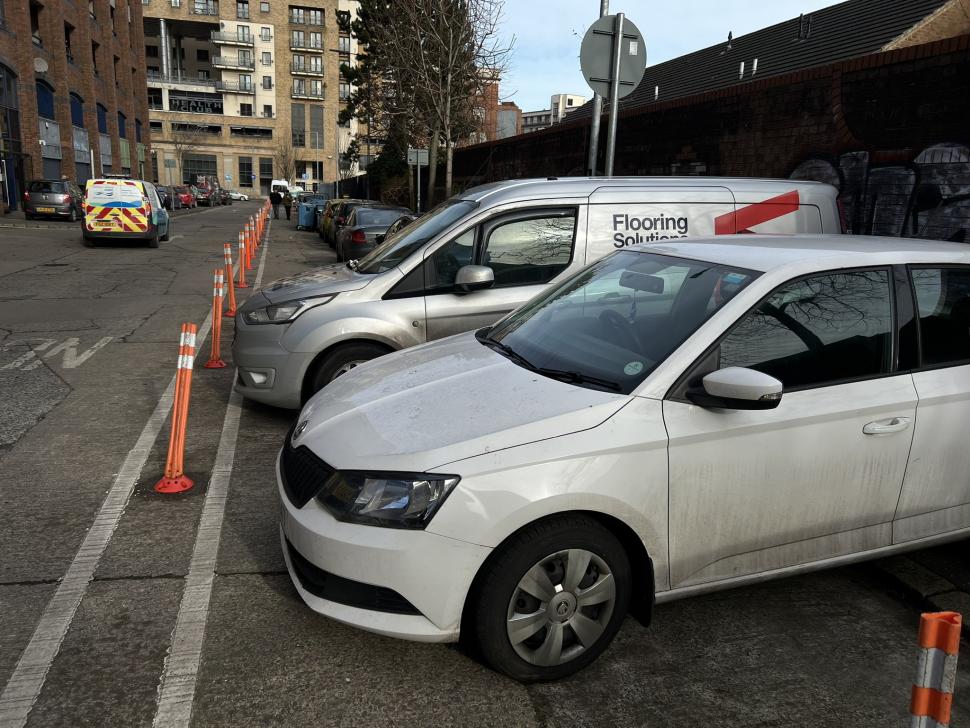



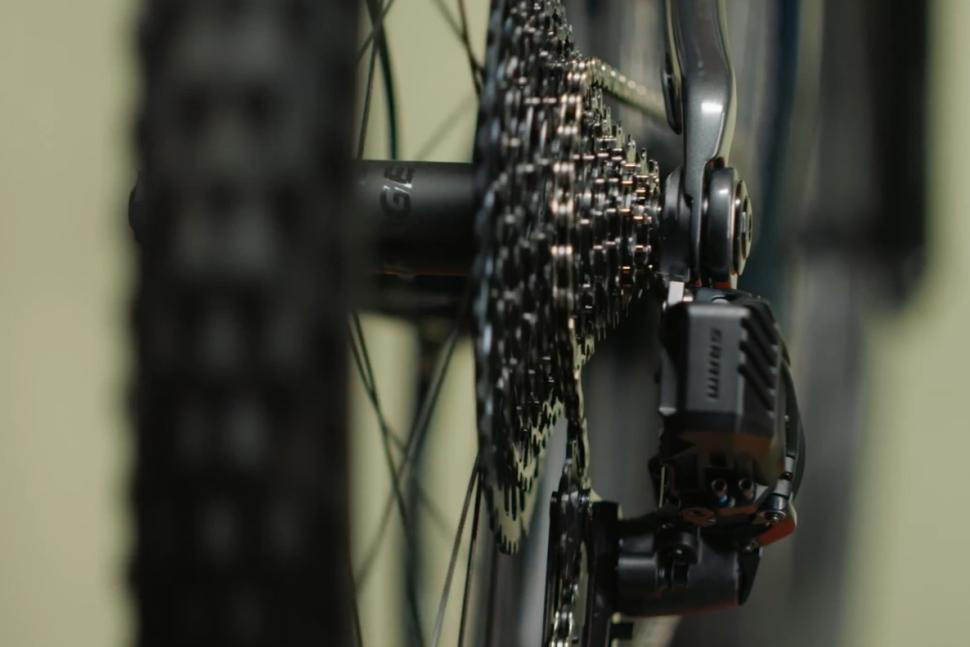
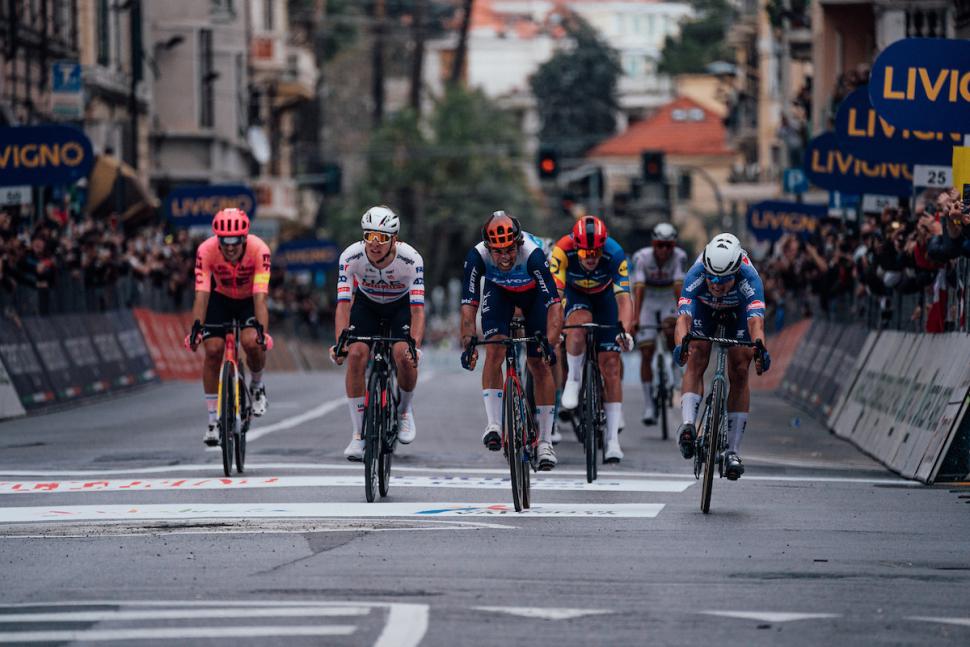




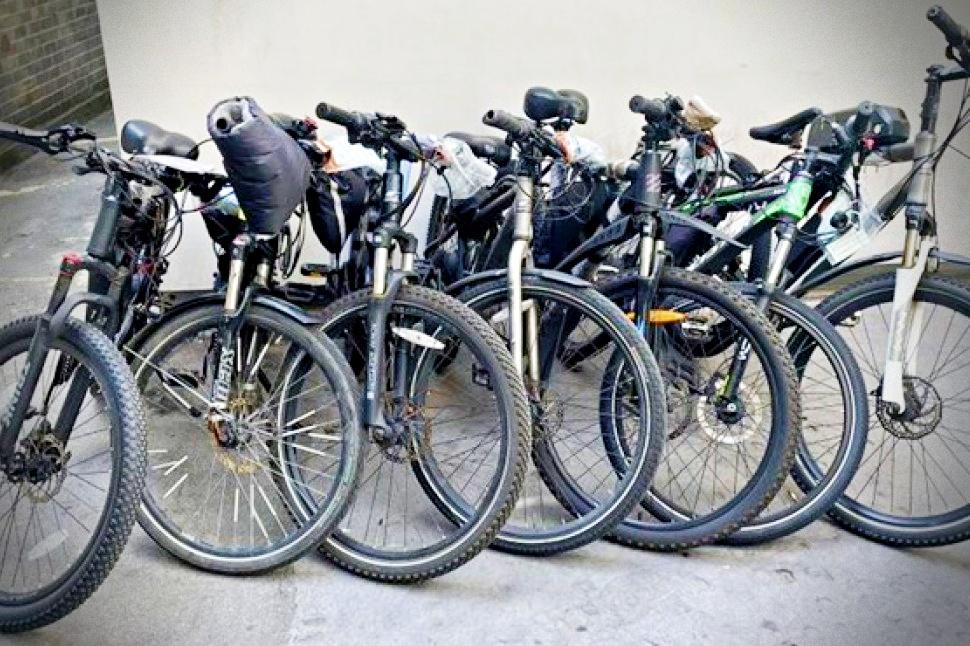

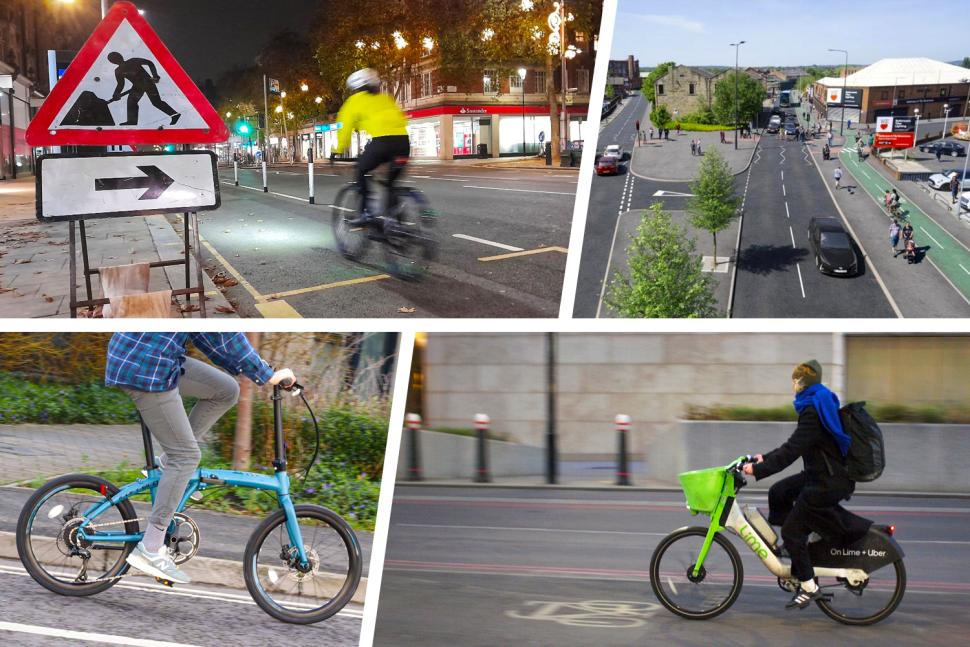
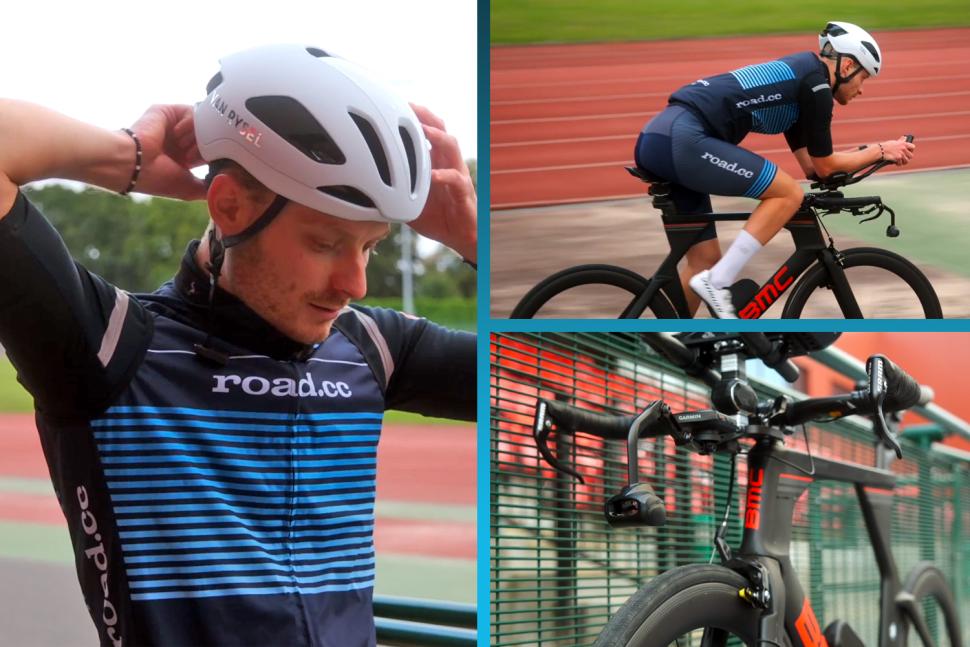
Add new comment
57 comments
West Bars dutch style roundabout?
Looking forward to Dan Walker getting knocked off and thanking his helmet for saving his life.
“On average it put 45 minutes on a journey. Terrible idea, locals avoid it and call it crazy,” she said.
45 minutes? Are they waiting for a very slow walker to walk around the whole bloody roundabout?? Couldn't possibly be all the other cars causing the delays.
If drivers adhered to speed limits and the highway code we wouldn't need this sort of infrastructure. Tha majority of people who don't pay road tax are dead people, there are some stupid people who think they pay road tax, but there's no hope for them.
"We" are those cycling already so in a sense "we" don't. But it would be nicer.
Also for all the people who don't cycle all those short trips which are easily cycleable (may of those driving or in motor vehicles) * well, it seems they do need it. The evidence is that the only places where a significant percentage of journeys are cycled rather than driven it has taken the creation of such infra for that to happen. (Here's an "it was built and then they came" case).
As a cyclist and pedestrian actually the sort of infra I don't need is ... a roundabout, at all! If there are only cyclists and pedestrians a 3.5m lane (or greater, or two of them) is not just unnecessary - it's a nuisance for pedestrians to cross. Nor do I need traffic lights, nor crash barriers ... those are only "because cars". All cost a LOT more to build and maintain than cycle / pedestrian only stuff.
So ... yeah - this cycle infra is actually as much "car infra" as anything. But it doesn't need to be "everywhere" - just where we haven't / can't tame the car sufficiently e.g. where there's a lot of motor traffic and/or it's going at a high speed, or there are very large motor vehicles like trucks or buses.
* Luckily I believe - just - there is "hope for them" in that they are humans, same as they have elsewhere. And in NL, parts of Scandinavia, Seville... they do cycle a lot more short trips than here. The conditions needed to get people to do so are in fact rather simple and are well understood. However setting up those conditions is incredibly hard. But e.g. in Seville they have actually made that change.
That roundabout already has a pedestrian crossing on one exit. It's not that unusual. Also, highway code Rule 187 in regards to roundabouts says:
In all cases watch out for and give plenty of room to
It's pretty hard to have pedestrian crossings only on the entrance to roundabouts and not exits, unless you want a lot of people stuck in the middle of the road.
That would be football, where there are three National Leagues, a League One that's the third tier, a Championship that's the second tier, and a Champions League where most of the teams aren't champions?
Don't forget the injured players who aren't actually injured (but roll around holding their legs, anyway)
I wonder whether more footballers or cyclists end up cripples though. And whether more footballers or cyclist have brain damage.
Rugby players can develop brain damage, footballers start their career with it
Not a fan then? Or just sceptical about the risks?
Don't get me started.
Roll around like they've been shot, while those allegedly soft lycra twats pick themselves up and get on with it!
Does pain get more, the more you earn?
“Please take a moment and think before you park.” NI Department of Infrastructure.
I lived in Belfast about thirty years ago, and the DoI was extremely resistant to anything that might make cycling slightly less dangerous then. Good to see nothing has changed and the DoI give precisely as many flying flamingoes now as they always did.
We all know that most drivers won't do anything that makes it slightly inconvenient for themselves, and asking them nicely to be considerate of others is rather like asking the Great Bugblatter beast of Krall to please think before they bite your head off.
If the UK is stuck in the 1990s when it comes to cycling, NI must still be in the 1950s. DoI, Dinosaurs of Infrastructure.
Mutter… mutter… Pope… Catholic… Bears… Woods… mutter… mutter…
If Deliveroo were serious about stopping illegal delivery vehicles, then they could just offer a meal refund if the customer provides evidence that it was delivered by a dodgy vehicle.
If.
But luckily those people delivering food for them have nothing to do with Deliveroo. They just happen to be doing work instructed by Deliveroo, in Deliveroo livery, and be paid by Deliveroo. They're not employees and really I'm amazed anyone would bring that company's good name up in this context...
And the riders have to buy the liveried accessories.
Deliveroo and their ilk don't give a shit!
Here in Nottingham I'm constantly remonstrating with delivery riders for riding on crowded pavements. That their bikes are illegal is the least of my worries.
It is very wearing that road.cc writing staff in effect behave like anti-cycling trolls, or platform the comments of anti-cycling trolls.
The Sheffield scheme looks great, and I would have liked to see presented in a positive way here.
I love the 'Sheffield is hilly' argument... surely all the more reasons that Sheffield should be building stuff like this, they can't do a lot about the hills, but anyone who takes on the hills of Sheffield surely deserves the best possible cyling infrastructure.
The People's republic of Yorkshire has a proud tradition of breeding competent cyclists precisely because the whole county is rather hilly.
I mean, nobody cycles in Switzerland, or Scandinavia, or the North of the Netherlands ...
I don't want to bring up e-bikes in what is essentially "we just don't want to do something so we'll find a reason" argument ... but EAPCs exist and are rather known for "flattening out hills".
Nobody panic, but Garmin is down. I repeat, Garmin is down.
Having lived in Germany right on the Dutch border where I could cycle and drive frequently, there are things I would like to point out in both sides of the argument..
These roundabouts work quite well in the Netherlands. They are everywhere and considering the entire system of roads is very cycling focused it helps that this means there are far fewer cars on the roads to begin with. You get much less inner city traffic and it's mostly concentrated to the motorway (or autosnelweg). So expecting them to just slot into a much busier ecosystem is a little naive.
But I look at various other UK road anomalies / novelties such as the magic roundabout in Swindon. To look at it from the air it looks madness. When you actually drive it a few times it makes a lot more sense. Why? Because people adapt. How wise do people navigate roads they are unfamiliar with? How do I know , when I get off the ferry in Calais that I don't drive on the left? A bit of research? Maybe a road sign as a reminder? How do I know not to drive over that bump back bridge at 30mph? Oh yeah another sign. That prepares me for what is ahead.
Most of the arguments (whinges) by people who haven't even experienced it yet is just plain laziness or refusal to accept change. Nothing more. What would these people ever do if they drive abroad where you may encounter this type of roundabout, but with the added obstacle of it flowing the other direction?
The logic in some comments ie non road tax payers, blah. Ignoring the obvious , since when were pedestrians classed as non tax paying road users? Are they so self centred they can't even abide people on foot? Children walking to school for example. Sorry, these people assume the only way a child arrives at school is in an SUV right to the gate like they are dropping off a VIP in a war zone.
Which always changes my mindset from let's help educate these people and help them adapt to plain Fuck Em.
Isn't this just a normal roundabout, with a single vehicle lane, and crossings on the exits/entrances?
What's to get used to?
People [peds, cyclists, etc] waiting to cross ... drivers stop. Just like if there was a vehicle already on the roundabout.
People waiting to cross on the exit ... drivers stop. Just like any other crossing.
Or is it the one lane on the roundabout itself that forces lazy drivers to observe lane discipline?
As I understand it (looking on Google Maps) it is 5 sattelite mini roundabouts, around a larger island which is effectively a roundabout the goes the wrong way - looks horrible.
The problem as I see it in the UK, we bring in trial schemes but if they are succesful we don't roll them out all over the country so that they become the norm, instead they are piecemeal and dependeant on the conservative opinions and prejudices of individual engineers and planning officers.
I think maybe the drivers' fear is "if I have to stop for a crossing when I'm exiting a roundabout, someone might hit me from behind". People said the same about waiting to let pedestrians cross side roads when the HWC changed - "but I'll get rear ended by someone who's not expecting me to stop". Course the same logic doesn't seem to stop people pulling out in front of you on a roundabout or conversely blocking a roundabout - when it suits them.
It's not naive - it's simply either using the wrong tool or using a tool in an inappropriate way, because we have the wrong mindset from the get-go.
I'm a big fan of this sort of thing - but like most infra they "work" best under certain conditions and may not be safe or useful under others.
Even in this country we have the notion of limits to traffic flows (normally we're only interested in motor traffic flow...) for different designs. Quite rightly the Dutch have determined that these designs only "work" within certain parameters - here a (by UK standards) low maximum flow of traffic and at low speeds (almost always 30kmh or below I think). If the flow or speed is much higher then you either reduce it first or the roundabout is the wrong tool *.
These are not "traffic calming" infra so sticking them in to a system which is too busy with the idea of reducing traffic is going to instead reduce safety for cyclists and pedestrians, or reduce their convenience - AND trigger drivers.
* In the UK because we're motor-traffic focussed we're apparently blind to distinctions between a high-capacity "turbo roundabout" - ONLY for motor vehicles - and one of these (well ... can't agree to do things differently).
You kind of just described nativity right there . Wrong mindset - lack of wisdom or judgement.
id call that naive
Fair enough. I go for "not invented here!". Or "hubris / cynicism" - thinking your "new" idea is amazing and/or not really caring about the outcome because it's not really important like motor transport is (or it's not your money).
I'm likely too cynical myself but lots of UK cycle infra designs seems to lack the innocence of "naive".
Pages